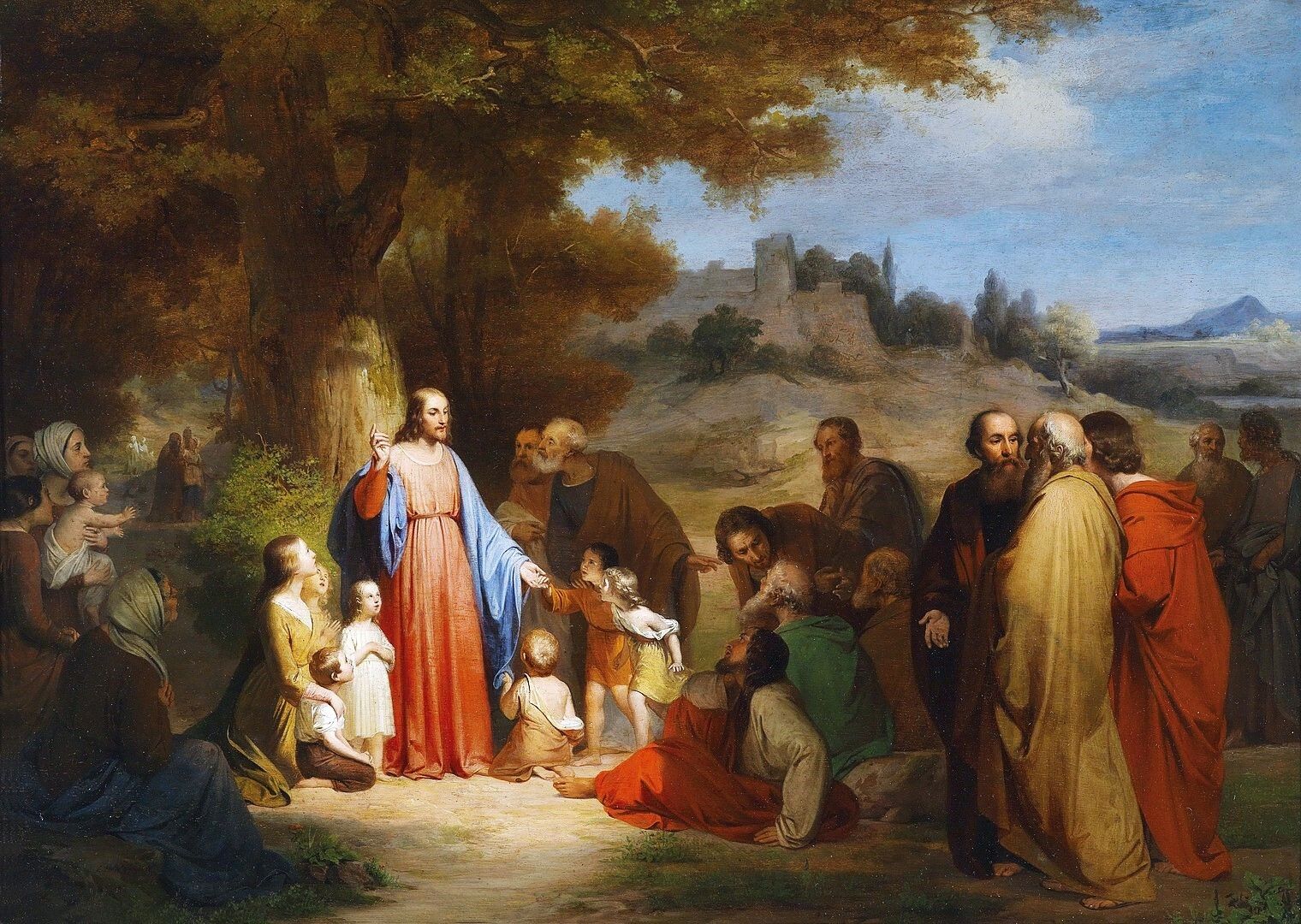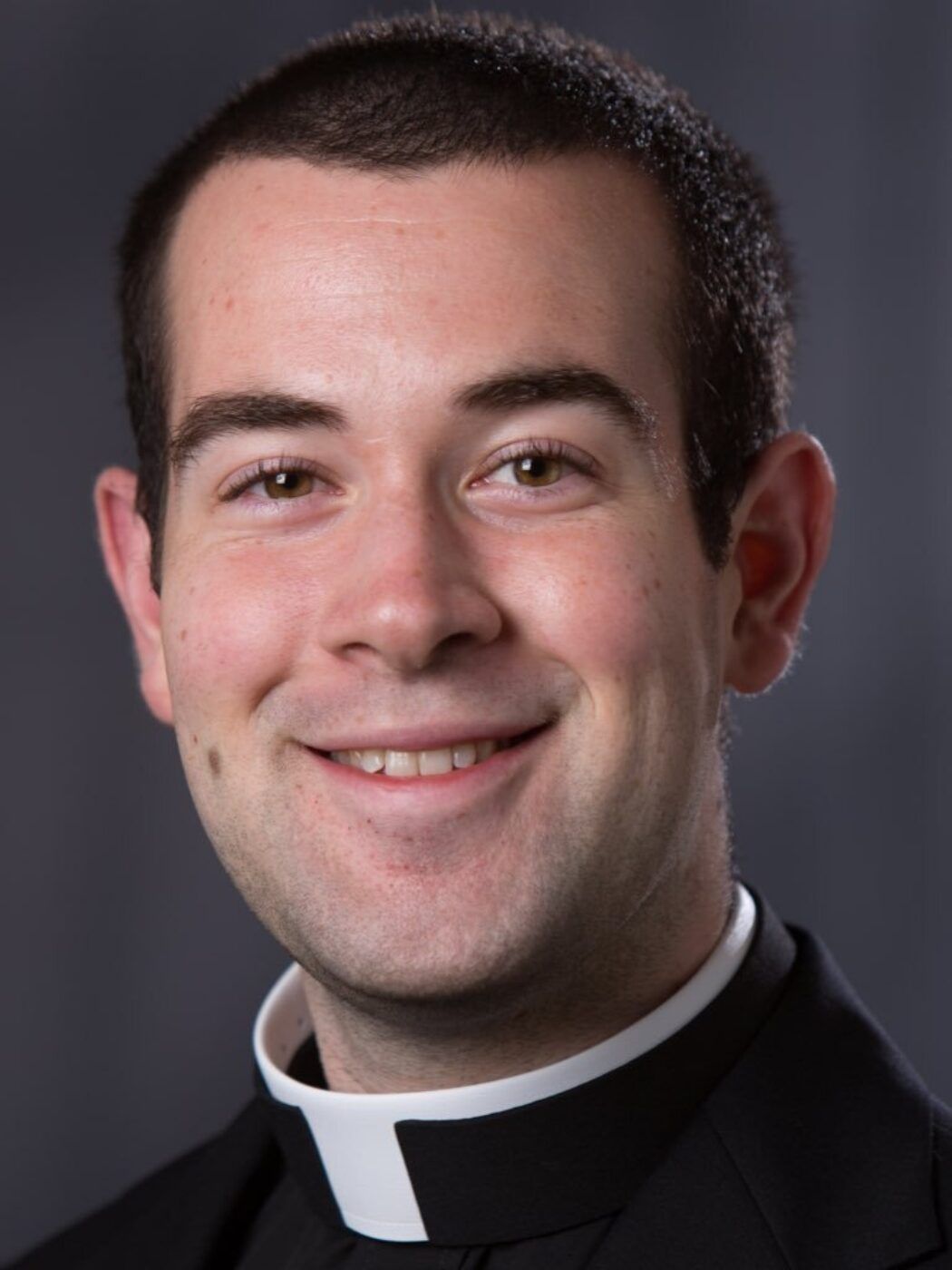Across the landscape of all three readings this weekend, we see a conflict engaged, one which plays out in neighborhoods, in our nation, and in the recesses of our own soul - the struggle between the childish and the childlike. The words sound almost the same, but the two realities at play could not be more different. Our Lord calls us to become childlike, and He says that the kingdom of Heaven belongs to such as these. But what does this mean, and how do we distinguish it from the shortcomings of childishness?
The crux of the matter comes down to what St. James refers to, in today’s second reading, as our passions. “Passions” is the old-fashioned name given to what we call “emotions,” those bodily feelings which incline us either toward or away from something. We experience these all the time - desire, joy, sadness, hope, aversion, anger, fear, hatred, despair, love, courage. In many ways, our emotions can be affected by our surroundings and the things that happen to us. A cloudy, overcast day can make us feel somewhat sad for no particular reason. Or someone cuts us off in traffic, and before we’ve even reflected on it, we’re hot with anger. Or we’re down in the basement and the lights suddenly go off, and we instantly feel a bolt of fear.
In themselves, our emotions are morally neutral because they come unbidden. What matters are the choices we make after feeling them. Feeling sad, do we choose to nevertheless be kind to others, or do we choose to act morose and pull others down into our sadness? When feeling anger, do we take a deep breath and move on, or do we lash out in fury at the one who has offended us? Our emotions can also be a help to us. In the presence of food, we can feel a desire if our body needs nourishment. Standing at the edge of a cliff, we might feel fear because our bodily senses rightly recognize the danger at hand.
The problem is that our emotions tend to be out of balance, jumbled up, tugging us left and right, pushing us to choices which we regret once the power of the emotion passes and we’re left with the results. St. James asks, “Where do the wars and where do the conflicts among you come from? Is it not from your passions that make war within your members?” Indeed, there is a war within us.
When I was a kid, I used to always marvel at something which was said during the Prayers of the Faithful at my home parish. The reader would conclude by saying, “And for those intentions we hold in the silence of our hearts.” The silence of our hearts? It seemed to me that my heart was the least silent place of all. A thousand thoughts, feelings, observations, and memories were in constant tumult within me. As I grew older, I had the good fortune to come across the writings of St. John of the Cross who put the lie to that churchy cliche “the silence of our hearts.”
John, and all masters of the spiritual life, teach that interior silence, stillness, and peace will only ever be ephemeral in our lives until we undertake a long and serious road of purification through prayer and mortification. Our emotions need to brought in proper balance, quieted down, made submissive to reason. The entire first stage of the interior life deals with the ascetic path we must pursue before we can ever hope to rest in a lasting interior silence.
And this is the true difference between the childish and the childlike. The childish are dominated by their emotions and make reactive choices in the grip of feeling. Often this can’t be perceived externally because we learn by social conventions not to fully act out our feelings because of the repercussions. But such things in themselves don’t always reach us at the level of our hearts. For instance, if someone angers you, hopefully you don’t lash out, but perhaps you spend the rest of the day at your desk replaying the incident in your mind, fantasizing about the devastating response you would have offered. This is childish. You don’t actually do it, but you still let your heart be dominated by the passion of anger. And the same can happen with every other passion. The danger here is precisely what our Lord Jesus told us several Sundays ago in the Gospel - it is from the heart that those things which either save or defile us come forth.
Our blessed Lord is always concerned with the heart because it is here that the truth of who we are as persons emerges. God sees our hearts, He loves us, and He wants to heal us, He wants to introduce us into mysteries of deep prayer which we can’t even imagine. But the gate to great mysteries is a low one, requiring us to get on our knees. It’s a narrow gate, and we won’t be able to get through if we’re inflated with pride, anger, lust, envy, or any other passion. Our Lord says that unless we become as children, we won’t enter the kingdom of heaven.

To be childlike is to be simple, trusting, not puffed up, aware of how much we need help. Ready to run to God in every need, without pretension, shame, or affectation. Honest and at home with the truth about who we are, the truth of our hearts. Whether we are seven years old or seventy-seven, we can be either childish in the vain imaginings of our heart, or we can seek to become childlike, giving Christ a free hand in the inner transformation of our souls, climbing the rugged path of purification to ascend the holy mountain, there to meet God in mystery and in power. This is possible for anyone, because God gives His grace without measure. What’s required, however, is an unshakeable commitment, a willingness to sacrifice anything for Jesus Christ, to love Him more than life itself. And to renew this love every day, and to come back to it, if ever we stumble and fall away.
As we approach the sacrifice of the Eucharist, let us lay open our hearts to God. Let Him in, not to an imaginary silence of our hearts, but into the actual noise, the cacophony, the emotional circus which we bear about within us. He is that Wisdom from above, which is pure, peaceable, gentle, compliant, without inconstancy and insincerity, full of mercy and good fruits.


